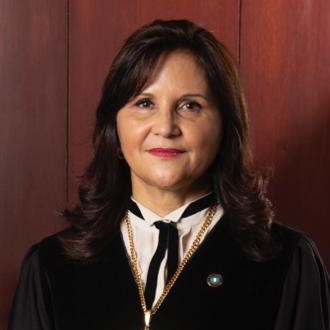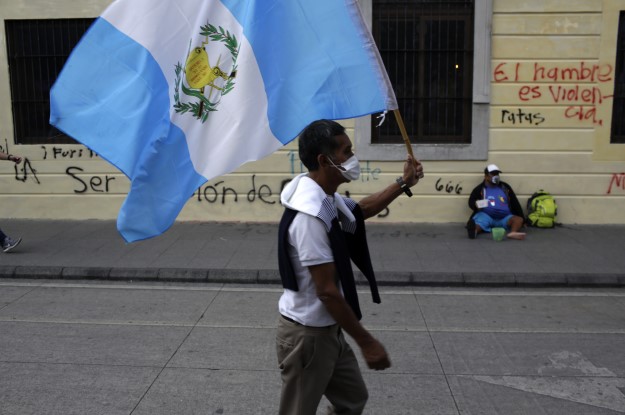I have served as a justice for Guatemala’s highest tribunal – the Constitutional Court – for the last decade. My record will show votes to deny amnesty for crimes against humanity, as well as decisions establishing strong precedent in favor of indigenous rights. In March, I was elected to a third consecutive term on the court.
And yet, on April 13, Congress blocked me from swearing in. The move, based on a technicality, citing irregularities in my election by Guatemala’s Supreme University Council and the fact that I’m not a university professor, follows requests from the same coalition of lawmakers to remove my legal immunity as a judge. Together, these efforts to punish me for my decisions on the bench are an affront to judicial independence.
I am speaking out because Guatemala’s democracy, rule of law and stability are under attack at a time when the stakes for the country and its neighbors are especially high. The new administration in Washington has promised to help Guatemala address the violence and poverty pushing families to migrate north, but it has also stressed that rule of law and anti-corruption must be central to any partnership.
This is about much more than me. I see my removal as a direct threat to the authority of the Constitutional Court, which since Guatemala’s transition to democracy has played a pivotal role solving high stakes controversies in a democratic, institutional manner.
In recent years, the court has proven to be a vital check on power and corruption. When President Jimmy Morales launched a crusade in 2017 against the International Commission Against Impunity in Guatemala – the UN-backed body who supported local prosecutors between 2007 and 2019, leading to the presentation of over 170 corruption cases to date – it was the Constitutional Court that ordered him to stand back time after time.
Morales ultimately succeeded in expelling CICIG from the country, and while he is no longer in office, the corrupt sectors that supported his efforts remain powerful and eager to stamp out further threats to their impunity.
In fact, since CICIG’s demise, the Constitutional Court has had to halt a series of irregular actions and abuses of power by public authorities, which has set my colleagues and I at odds with the country’s most influential and wealthy criminal networks.
In one example, in 2019 the Constitutional Court ordered Congress to re-start the process of selecting and confirming magistrates to the Supreme Court and appellate courts. The ruling resulted from an investigation by Guatemala’s special anti-corruption prosecutors’ office, which uncovered that nominees to the courts, their electors in Congress, and a series of political brokers outside the system had met informally to influence the outcome of the process. The court ruling, which ordered a re-do of the entire appointment process, has not been complied with in over two years.
What has happened, however, is that justice officials who have shown themselves to be independent, including prosecutors, judges and now, even Constitutional Court justices, have been targeted with legal actions and lawsuits. Committed civil servants face systematic smear campaigns and attacks aimed at undermining public support and delegitimizing their work.
I have faced over 70 lawsuits — more than 30 remain active — and have been routinely targeted by similar campaigns since 2017, some of which even reveal personal information to intimidate me. When Congress blocked my confirmation, I lost my immunity, and became more vulnerable to these attacks.
I am not the first woman in Guatemala’s justice system to face backlash for her efforts to combat corruption, and like many of them, I will not be afraid. I will fight this decision because I was lawfully selected for the job for a third time due to my strong performance during the last two terms. I seek to protect my legacy of fighting corruption and promoting indigenous rights despite opposition from powerful groups.
If the authority of the Constitutional Court is not respected, there is real risk of authoritarian fallout threatening democracy and the rights of citizens. For international observers, solidarity with our nation’s troubles is also in line with an interest to ensure stability for the region. Guatemala can only overcome its most pressing challenges — fighting poverty and hunger, creating economic opportunities for all and reducing irregular migration — if its institutions uphold the aspirations and objectives contained in the Constitution. Our partners worldwide, including President Joe Biden’s administration in the U.S., should continue to pay attention.
The end result of this political challenge – which is well beyond charted legal territory – will likely affect a generation’s entire security, economic, and development prospects.





